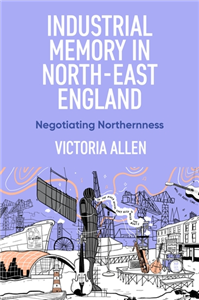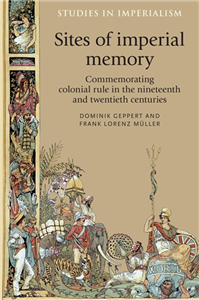Your Search Results
-
Promoted Content
-
Promoted ContentMarch 2004
Das kleine Buch fürs Wesentliche
Weisungen für ein spirituelles Leben (nur Innentitel)
by Dass, Ram
-
 Trusted Partner
January 1967
Trusted Partner
January 1967Der bei Ausbleiben staatlicher Ablehnung verbindliche Mehrheitsbeschluß der Weltgesundheitsorganisation.
Ein Verordnungsverfahren des genossenschaftlichen Völkerrechts.
by Rom, Alexander von
-
 Trusted Partner
April 2023
Trusted Partner
April 2023Die Fabrikation von Erkenntnis
Zur Anthropologie der Wissenschaft | 50 Jahre stw – Limitierte Jubiläumsausgabe
by Karin Knorr Cetina, Rom Harré
Wie entsteht eine wissenschaftliche Tatsache? Wie stellt sich naturwissenschaftliche Kreativität dar, wenn man sie im Labor des Naturwissenschaftlers beobachtet? Wie verhält sich die handwerkliche Arbeit der Forscherin zu dem, was im veröffentlichten wissenschaftlichen Text steht? Karin Knorr Cetina geht durch das Labor mit den Augen einer Anthropologin, die die Sitten und Gebräuche einer fremden Ethnie mit der Distanz, aber auch der Sympathie des Mitglieds einer anderen Kultur studiert. Dabei zeigt sich, dass man das Unternehmen Wissenschaft mit idealisierten epistemologischen Begriffen nicht besonders gut zu fassen bekommt. Es muss vielmehr aus der Alltagswelt wissenschaftlicher Handarbeit rekonstruiert werden. Ein Klassiker der Wissenschaftssoziologie.
-
 Trusted Partner
Trusted Partner
-
 Trusted Partner
1992
Trusted Partner
1992Emanuels Buch
In Harmonie mit dem Kosmos leben
by Rodegast, Pat; Stanton, Judith / Vorwort von Dass, Ram; Englisch Höner, Rita; Illustriert von Rodegast, Roland
-
 Trusted Partner
Humanities & Social SciencesJune 2024
Trusted Partner
Humanities & Social SciencesJune 2024Peace and the politics of memory
by Annika Björkdahl, Susanne Buckley-Zistel, Stefanie Kappler, Johanna Mannergren Selimovic, Timothy Williams
This important book provides new understandings of how the politics of memory impacts peace in societies transitioning from a violent past. It does so by developing a theoretical approach focusing on the intersection of sites, agency, narratives, and events in memory-making. Drawing on rich empirical studies of mnemonic formations in Cyprus, Bosnia and Herzegovina, Rwanda, South Africa and Cambodia, the book speaks to a broad audience. The in-depth, cross-case analysis shows that inclusivity, pluralism, and dignity in memory politics are key to the construction of a just peace. The book contributes crucial and timely knowledge about societies that grapple with the painful legacies of the past and advances the study of memory and peace.
-
 Trusted Partner
Humanities & Social SciencesSeptember 2025
Trusted Partner
Humanities & Social SciencesSeptember 2025Industrial memory in North East England
Negotiating northernness
by Victoria Allen
Industrial memory in North East England examines how the region's industrial myth and memory have been articulated in the renegotiation of northernness. The book offers a critical contextualisation of the concept of northernness and the English North, and an introduction to the concept of the PopCultural Portfolio, a mixed-methods approach to conjunctural analysis in cultural and memory studies. The book provides six richly illustrated case studies to demonstrate the practical application of cultural studies' expansive and inclusive understanding of texts, bringing together materials from North East football, folk, indie and exhibition culture to establish how the North East's industrial past continues to be remembered and functionalised as industrial memory. In turn, the conjunctural analysis demonstrates how industrial memory is articulated and mythologised as north(east)ernes in contemporary popular culture.
-
 Trusted Partner
Humanities & Social SciencesOctober 2021
Trusted Partner
Humanities & Social SciencesOctober 2021Loyalty, memory and public opinion in England, 1658–1727
by Peter Lake, Anthony Milton, Jason Peacey, Alexandra Gajda, Edward Vallance
-
 Trusted Partner
Humanities & Social SciencesFebruary 2015
Trusted Partner
Humanities & Social SciencesFebruary 2015Sites of imperial memory
Commemorating colonial rule in the nineteenth and twentieth centuries
by Andrew Thompson, John Mackenzie
Europe's great colonial empires have long been a thing of the past, but the memories they generated are still all around us. They have left deep imprints on the different memory communities that were affected by the processes of establishing, running and dismantling these systems of imperial rule, and they are still vibrant and evocative today. This volume brings together a collection of innovative and fresh studies exploring different sites of imperial memory - those conceptual and real places where the memories of former colonial rulers and of former colonial subjects have crystallised into a lasting form. The volume explores how memory was built up, re-shaped and preserved across different empires, continents and centuries. It shows how it found concrete expression in stone and bronze, how it adhered to the stories that were told and retold about great individuals and how it was suppressed, denied and neglected. ;
-
 Trusted Partner
Political oppression & persecutionJuly 2014
Trusted Partner
Political oppression & persecutionJuly 2014Co-memory and melancholia
Israelis memorialising the Palestinian Nakba
by Ronit Lentin
The 1948 war that led to the creation of the State of Israel also resulted in the destruction of Palestinian society when some 80 per cent of the Palestinians who lived in the major part of Palestine upon which Israel was established became refugees. Israelis call the 1948 war their 'War of Independence' and the Palestinians their 'Nakba', or catastrophe. After many years of Nakba denial, land appropriation, political discrimination against the Palestinians within Israel and the denial of rights to Palestinian refugees, in recent years the Nakba is beginning to penetrate Israeli public discourse. This book, available at last in paperback, explores the construction of collective memory in Israeli society, where the memory of the trauma of the Holocaust and of Israel's war dead competes with the memory claims of the dispossessed Palestinians. Against a background of the Israeli resistance movement, Lentin's central argument is that co-memorating the Nakba by Israeli Jews is motivated by an unresolved melancholia about the disappearance of Palestine and the dispossession of the Palestinians, a melancholia that shifts mourning from the lost object to the grieving subject. Lentin theorises Nakba co-memory as a politics of resistance, counterpoising co-memorative practices by internally displaced Israeli Palestinians with Israeli Jewish discourses of the Palestinian right of return, and questions whether return narratives by Israeli Jews, courageous as they may seem, are ultimately about Israeli Jewish self-healing rather than justice for Palestine.
-
 Trusted Partner
The ArtsMay 2004
Trusted Partner
The ArtsMay 2004The memory of catastrophe
by Peter Gray, Kendrick Oliver
Investigates the dynamic relationship between experiences of profound social and cultural disruption, and human memory. Critical comparisons are made across a wide variety of catastrophic experiences and memories; not just of war, but also of massacre, genocide, rebellion, famine, partition, shipwreck and fire. The book is an accessible showcase for a wide range of methodological approaches to the study of memory, including literary studies, cultural studies, participant-observation and historical studies, and uses a variety of oral, visual and written sources. Offers a diverse chronological and geographical range of catastrophic cases, from seventeenth-century England to the recent conflicts in the former Yugoslavia, from Ireland to the Indian sub-continent, from Mexico to wartime Leningrad. Well-written and accessible - a fascinating read. ;
-
 Trusted Partner
Humanities & Social SciencesSeptember 2010
Trusted Partner
Humanities & Social SciencesSeptember 2010Photography and memory in Mexico
Icons of Revolution
by Andrea Noble
Photography and memory in Mexico traces the 'life stories' of some of the famous photographic images made during the 1910 revolution, which have been repeatedly reproduced across a range of media in its aftermath. Which photographs have become icons of the revolution and why these particular images and not others? What is the relationship between photography and memory of the conflict? How do we construct a critical framework for addressing the issues raised by iconic photographs? Placing an emphasis on the life, afterlife and also the pre-life of those iconic photographs that haunt the post-revolutionary landscape, Andrea Noble approaches them as dynamic objects, where their rhetorical power is derived from a combination of their visual eloquence and their ability to coordinate patterns of identification with the memory of the revolution as a foundational event in Mexican history. Richly-illustrated, this book will be of interest to all those interested in photography, memory studies, and Mexican cultural history. ;
-
 Trusted Partner
Literature & Literary StudiesJanuary 2026
Trusted Partner
Literature & Literary StudiesJanuary 2026Shakespeare, memory, and modern Irish literature
by Nicholas Taylor-Collins
-
 Trusted Partner
Humanities & Social SciencesApril 2006
Trusted Partner
Humanities & Social SciencesApril 2006The My Lai massacre in American history and memory
by Kendrick Oliver
On 16 March 1968, two US infantry companies entered a Vietnamese village and in the course of a single morning killed over 400 of its unarmed, unresisting inhabitants . . . This is the first book to examine the response of American society to the My Lai massacre and its ambiguous place in American national memory. Kendrick Oliver argues that the massacre revelations left many Americans untroubled. It was only when the soldiers most immediately responsible came to be tried that opposition to the conflict grew, for these prosecutions were regarded by supporters of the war as evidence that the national leaders no longer had the will to do what was necessary to win. Oliver goes on to show that, contrary to interpretations of the Vietnam conflict as an unhealed national trauma or wound, many Americans have assimilated the war and its violence rather too well, and they were able to do so even when that violence was most conspicuous and current. US soldiers have been presented as the conflict's principal victims, and this was true even in the case of My Lai. It was the American perpetrators of the massacre and not the Vietnamese they brutalized who became the central object of popular concern. Both the massacre and its reception reveal the problem of human empathy in conditions of a counter-revolutionary war - a war, moreover, that had always been fought for geopolitical credibility, not for the sake of the Vietnamese. This incisive enquiry into the moral history of the Vietnam war should be essential reading for all students of the conflict, as well as others interested in the war and its cultural legacies. ;
-
 Trusted Partner
Trusted Partner
-
 Trusted Partner
Art treatments & subjectsJanuary 2010
Trusted Partner
Art treatments & subjectsJanuary 2010Understanding heritage and memory
by Tim Benton
Written by an interdisciplinary team of scholars, this authoritative text explores the emotive issues surrounding the commemoration of war and atrocity, and the profound challenges for conservators posed by 'virtual', 'intangible' and 'multicultural' heritage. New international case studies demonstrate that while interest in the memorialisation of the great national upheavals of the last century has never been more acute, many of the problems of conserving the past in diverse and disparate societies remain to be resolved. Aimed primarily at students in heritage studies and professionals in heritage industries, this book is one of three in the Understanding Global Heritage series.
-
 Trusted Partner
Film theory & criticismJuly 2013
Trusted Partner
Film theory & criticismJuly 2013Memory and popular film
by Edited by Paul Grainge
One of the first books to put memory at the centre of analysis when exploring the relationship between film culture and the past. Provides a sustained, interdisciplinary perspective on memory and film from early cinema to the present, drawing from film studies, American studies and cultural studies. Adopts a resolutely cultural perspective and unlike psychoanalytic or formalist approaches to memory, explores questions of culture, power and identity. Contributes to the growing debate about the status and function of the past in cultural life and discourse, discussing issues of memory in film, and of film as memory. Considers such well known films as Forrest Gump, Pleasantville, and Jackie Brown.
-
 Trusted Partner
Trusted Partner
-
 Trusted Partner
Trusted Partner























